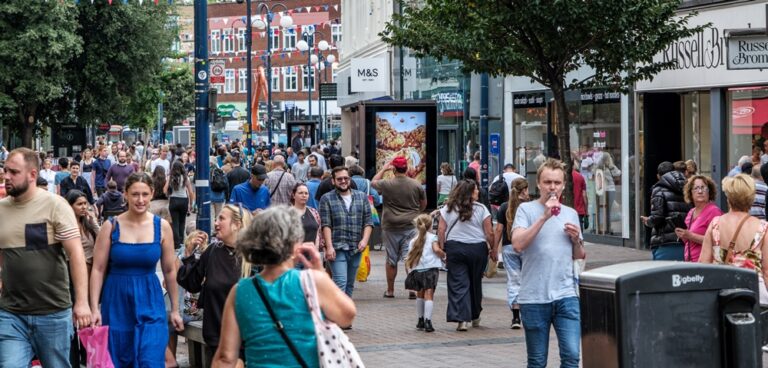Small businesses across the UK are being urged to have their say on the future of the high street, by taking part in a UK-wide survey by the Federation of Small Businesses (FSB) from today (13 July) on issues such as business rates relief, public transport and parking, access to cash and street cleaning.
The findings will be analysed, and recommendations then submitted to the UK and national and local governments and devolved administrations to help the UK’s high streets to flourish into the future. The survey will run from 13 July to the 27 July and can be found at https://www.fsbbigvoice.co.uk/FSBHighStreetsSurvey
 FSB Policy Chair Tina McKenzie said: “I encourage all small businesses in all parts of the UK to spare a few minutes to take part in the Future of the High Street survey. High streets are essential for small businesses, providing a platform for commerce and a sense of community pride, as well as opportunities for social interaction, events, and cultural activities. Sustainable high streets are key to a flourishing small business sector.
FSB Policy Chair Tina McKenzie said: “I encourage all small businesses in all parts of the UK to spare a few minutes to take part in the Future of the High Street survey. High streets are essential for small businesses, providing a platform for commerce and a sense of community pride, as well as opportunities for social interaction, events, and cultural activities. Sustainable high streets are key to a flourishing small business sector.
“Changes in consumer behaviour as well as huge hi-tech shifts mean that high streets across the UK are rapidly changing. We know that some big household name high street brands have closed, but barbers, nail salons, microbreweries and independent gyms can offer customers a unique experience.
“The more SMEs who take this survey, the more influential our collective voices will be. I say to all our SMEs out there: Let us know what experiences you’re having with business rates, with transport and parking, with access to cash; tell us which changes to your local area you think would create the biggest opportunities for your high streets. It’s a time to re-imagine the high street with creative thinking, backed by real public policy.”
The public highly values small businesses on the high street, according to recent research by FSB and Public First; A majority of respondents said that small businesses were more important than large businesses for the following categories: Keeping traditional craft and skills alive (78%), pride in local communities (76%), providing unique services and products (72%), and growing the local economy (57%).
A new mixed use of many high streets can already be seen in some areas. The creation of small business co-working spaces, councils taking old offices to provide services, artists using disused department stores. These demonstrate a re-imagining of spaces whose original purpose is now from a different era. The right policies could see new innovations, like creating new local banking services through the post office.”
According to FSB, it’s a misconception that online commerce is a threat to the high street, saying that online works with high streets. Instead, the real threats to a flourishing high street are having an archaic business rates system; not taking on board transport and parking provision and a lack of investment in local business support including enabling start-ups and businesses to access finance. The forthcoming survey will gather evidence from SMEs on these and other issues.

